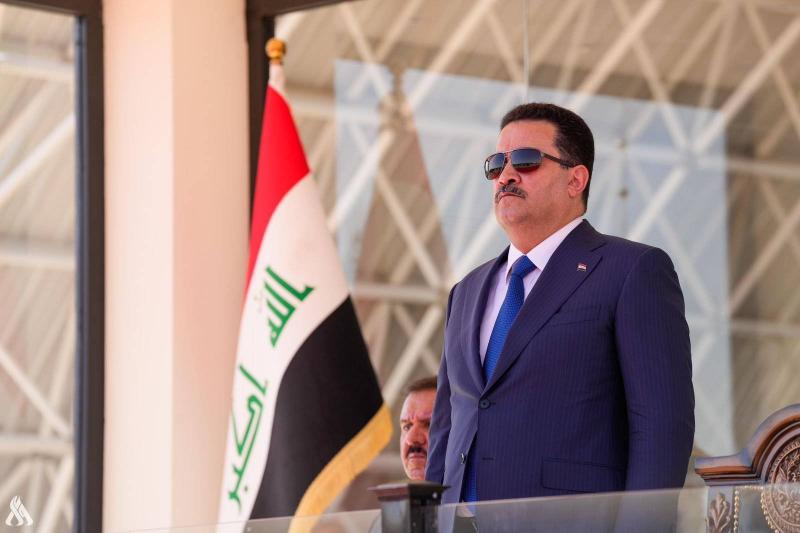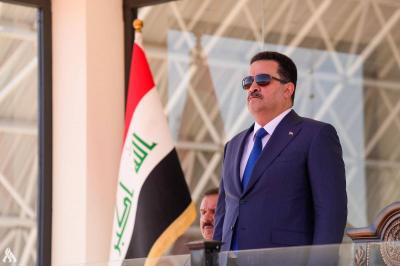The Iraqi Prime Minister congratulated the graduates of the 28th session of the Higher Institute and the 53rd session for officer rehabilitation, emphasizing the importance of incorporating human rights principles into the daily conduct of security personnel. He confirmed that the government has placed the issue of reforming security institutions at the forefront of its priorities since its formation.
Sudani attended the graduation ceremony of the 28th session of the Higher Institute for Security Development and the 53rd officer rehabilitation course, held at the institute's building in Baghdad, with the Minister of Interior present. In his speech during the ceremony, the Prime Minister congratulated the graduating officers, affirming their readiness to assume responsibility and defend Iraq and its people against any threat, stating that they would continue the legacy of previous officers who defended the country in the most challenging circumstances.
The Prime Minister stated, "Today you take the first steps on the path of responsibility, which requires you to be worthy of carrying it," adding, "Many of you will perform your duties in civilian departments, which are just as important as what combat officers do." He emphasized that "true security begins when we provide public service to citizens, and when the citizen feels that the state cares about their affairs and facilitates their transactions in government departments." He urged the officers to maintain high commitment and discipline in carrying out their duties to reflect the true image of security personnel, regardless of the task at hand.
He continued: "Your performance of security tasks must be according to the governing laws and in accordance with the constitution," reaffirming that "human rights principles must be present in the daily actions of security personnel and in the execution of their duties." He noted the significant role awaiting them in taking over security responsibilities in cities from military forces following improvements in security conditions, asserting that "terrorism has been stripped of its power and has become mere small, frightened, and hidden groups."
He added that "our security forces must be at a high level of readiness, and their plans must be constructed on a proactive basis according to intelligence data," stressing the need for continuous updates to security plans and utilizing the latest scientific advancements in security aspects.
He further stated that "the drug epidemic is as serious as the challenges posed by ISIS terrorism, as it threatens societal security and funds terrorism," underlining the necessity to double efforts to secure borders and combat drugs and organized crimes by transnational gangs. He emphasized the importance of cooperation and coordination with regional and international institutions and organizations to rid Iraq of the evils of drugs and organized crime.
He pointed out that "reforming the security institution is at the top of the government's priorities, by rebuilding its structures and keeping pace with the latest developments in training and security technologies, along with combating corruption." He mentioned that "the government has worked to rehabilitate security forces by reinstating 34,000 personnel whose contracts were revoked, and contracting with tens of thousands to inject new blood into the security institution, forming new brigades from the federal police and law enforcement."
He concluded by stating that "the government has taken upon itself the responsibility of caring for the families of our security personnel who sacrificed their lives, as well as ensuring justice for their families," adding, "Our directives continue to support the wounded and injured members of the security forces, and to provide them with treatment either within Iraq or abroad."




